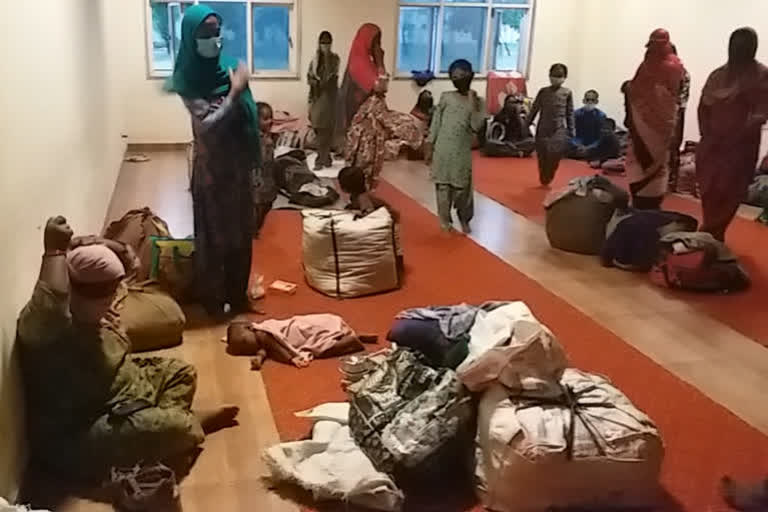New Delhi: A study conducted by the Rights and Risks Analysis Group (RRAG) has found that India's lockdown period reflects 'Singapore syndrome' in the country's 'dormitories'.
As many as 251 migrant workers including 170 persons on different modes of transport and 81 persons in Shramik trains died while trying to return home.
"They tried to escape instant joblessness, homelessness and hunger in the metropolis. Migrants died in road accidents, forest fire, due to exhaustion, illness, negligence in relief camps etc while the Shramik trains have turned into living hell-holes without water, food, and constantly running late without fans during scorching Indian summer," RRAG has found in its study.
The organisation marked the lockdown period from March 24 to May 31.
Stating that the lockdown had failed to contain community transmission of COVID-19 infections, which is reflected from 564 confirmed cases with 10 deaths on March 24 to 1,82,142 confirmed cases with 5,164 deaths as on May 31, Suhas Chakma, Director of the RRAG said, "'Singapore syndrome' is all about faster spread of COVID-19 cases during lockdown in situations where maintaining social distancing is impossible like the cramped dormitories housing the foreign migrant workers in Singapore."
"By March 5, Singapore was hailed being as the model country tackling COVID-19, but by May 27, it not only became the country with the highest number of confirmed COVID-19 cases in South East Asia despite the lockdown from April 7 to June 1, but out of the total 32,417 COVID-19 cases in the country, a whopping 30,623 or 94.5 per cent were dormitory cases."
Read: Lockdown trained people of India for new norms in lifestyle: Jitendra Singh
"Places like Dharavi slum in Mumbai are all but big dormitories far worse than the dormitories of Singapore. Infections of 15 per cent of the total foreign workers i.e. about 31,263 out of the total 2,00,000 foreigner workers of Singapore by 27 May are indicative of the spread of the virus in Indian dormitories," said Chakma.
Lockdown without addressing immediate needs of the migrants and the poor on real time basis has caused spread of the COVID-19 and many of these migrants returning home are carrying the disease with 2,433 returnee migrants in Bihar testing positive as of 30 May. The Northeastern states, which are like islands, are also witnessing a spurt in cases -- from 61 cases on May 1 to 1,689 positive cases on May 31.
On May 28, the government of India claimed before the Supreme Court to have transported 9.1 million migrants i.e. 50 lakh by 3,700 Shramik trains and about 41 lakh by road transport from May 1 to May 27.
"India's lockdown has caused the largest internal displacement ever recorded in history and it exposed the migrants to colossal humanitarian crisis not only because of the failure of the government but also the Supreme Court to ensure the right to life and liberty, the right to freedom of movement to return home with safety and dignity as guaranteed under Articles 14, 19(1) and 21 of the Constitution and enforce Section 12 of the Disaster Management Act, 2005," said Chakma.
COVID-19 cases are yet to peak in India and all the measures taken so far are highly inadequate, he said.
The RRAG recommended the Government of India to work out a national strategy with the full and meaningful participation of all the States and Union Territories and the opposition political parties by keeping aside electoral politics, include epidemiologists in decision making and ensure respect for human rights while tackling COVID-19 pandemic.
Read: COVID-19 LIVE: India reports spike of 8,392 cases, 230 deaths in 24 hours; tally at 1,90,535



